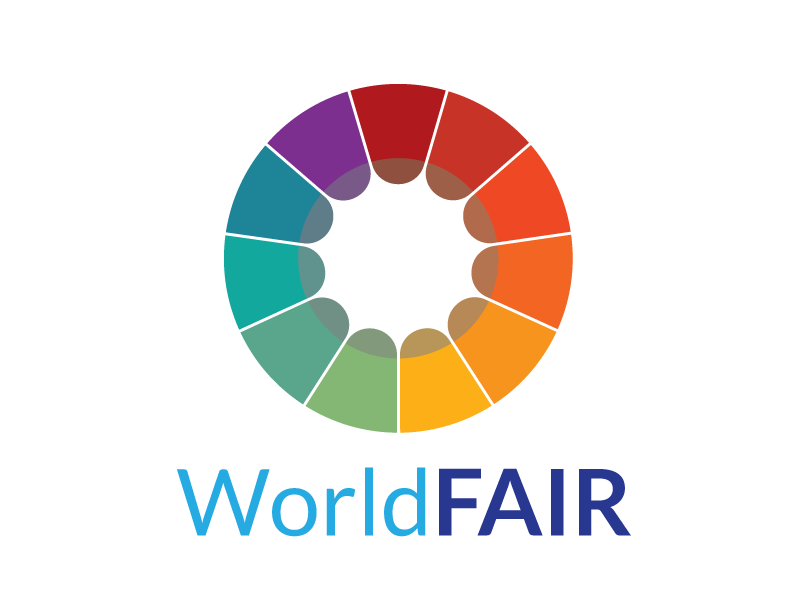Enabling Global FAIR Data: WorldFAIR Investment Recommendations for Research Infrastructures
Monday 2 December, 1:00 – 5:00pm, Studio 4 at the W Brisbane
Delivery format: Hybrid
Event Description
Research Infrastructures now play a crucial role in providing data products that support interdisciplinary research and address global challenges through the integration and analysis of diverse data. The WorldFAIR project demonstrates that a fundamental shift from the current bibliographic approach to data stewardship to a data engineering approach is required.
In addition to making policy recommendations that call for this fundamental shift, WorldFAIR published the first part of the Cross-Domain Interoperability Framework (CDIF). The CDIF is an emerging set of guidelines around domain-agnostic standards for supporting the implementation of interoperability and reusability of FAIR data, especially across domain- and institutional boundaries. CDIF identifies a set of functional requirements and makes recommendations for addressing these based on widely used and emerging standards.
In this session, we will present the outcomes of the WorldFAIR project, discuss its continuation in a broad set of aligned projects and address how Research Infrastructures can prepare data to better meet communities’ research needs. We will explore the drivers behind this new role, the challenges and opportunities it presents, and the necessary investments in infrastructure, technology, standards, and capacities to support these developments. Most importantly past, present and potential case studies will present their work and discuss the implications for research infrastructures.
Program
- 1:00 PM to 2:30 PM: WorldFAIR Phase One
- WorldFAIR Phase One and its objectives (Simon Hodson, CODATA)
- WorldFAIR Phase One: Presentations by 2 of the 11 WorldFAIR Case studies (talks to be a mix of what was achieved and implications for RI investments)
- The Social Surveys Case Study (Steve McEarchern, UKDA)
- The Geochemistry Case Study: (Lesley Wyborn, ANU, ARDC)
- Bringing together the 11 WorldFAIR Case Studies to create the Common Data Interoperability Framework (Simon Hodson)
- Enabling Policy Recommendations from WorldFAIR for Research Infrastructures (Simon Hodson, CODATA).
- Open discussion (Facilitator – Hamish Holewa, ARDC)
- 2:30 to 3:00 PM: Afternoon tea
- 3:00 to 3:45 PM: WorldFAIR Plus
- WorldFAIR Plus overview (Simon Hodson, CODATA)
- Scientific Drivers for WorldFAIR Plus:
- WorldFAIR Plus Projects: Confirmed and Potential Projects
The Ambition: Combining FAIR Data Across the Earth Systems Spheres and beyond to support a Sustainable Planet (Tim Rawling, AuScope)
i. Overview of confirmed new projects (Simon Hodson, CODATA
ii. Implementing CDIF across multiple Geoscience domains and at scale (HPC) (Rebecca Farrington, AuScope)
iii. Towards a CDIF for Plant Phenomics (Donald Hobern, APPN)
iv. CDIF in UKDA/CESSDA (Bonnie Wolff-Boenisch, CESSDA)
- 3:45 to 4:30: WorldFAIR Plus for You: Round table participant discussions (Simon Hodson, CODATA – Facilitator)
- In your domain, how would you design/promote a need for a case study for WorldFAIR Plus
- What is a data interoperability or data challenge in your domain or cross Domain that you could address in a WorldFAIR Plus case study
- What are the priority (FAIR) infrastructure, data and Metadata challenges that you need to address?
- Do you have a project or case study that you could connect to WF+
- FIPS
- CDIF implementation
- In your domain, how would you design/promote a need for a case study for WorldFAIR Plus
5. 4:30 to 5:00: Report back. (Simon Hodson, CODATA)

If you are already attending ICRI, the link below will show you how to register via our event portal
We acknowledge the Traditional Owners of the lands and waters throughout Australia, and pay respect to the Elders past, present and emerging. We recognise the importance of connection to culture, land, kinship and community to the health and wellbeing of Aboriginal & Torres Strait Islander families. We acknowledge the cultural practices and traditions still carried out today and being passed down to future generations.


